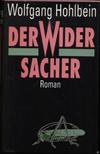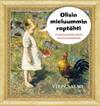
Planet of the Apes. Pierre Boulle (Vintage Classics)
by Pierre Boulle | Literature & Fiction | This book has not been rated.
ISBN: 0099529041 Global Overview for this book
ISBN: 0099529041 Global Overview for this book
1 journaler for this copy...
Have you ever picked up a book and wondered where it had been before, well welcome to the world of bookcrossing!
Bookcrossing is a wonderful place to share your love of reading with people all over the world and follow a book as it continues on its travels.
Please journal this book, describing where you found it, and then if you want to, what you thought of it. You can remain anonymous if you want to, though if you create a screen name you will be able to get notification each time someone else journals this book in the future.
When you have finished with it please release the book by leaving it somewhere where it will be found (please make a journal entry stating where you left it), and let it continue its journey.
Help keep its journey alive!
Following this books travels can be very fun.
Bookcrossing is a wonderful place to share your love of reading with people all over the world and follow a book as it continues on its travels.
Please journal this book, describing where you found it, and then if you want to, what you thought of it. You can remain anonymous if you want to, though if you create a screen name you will be able to get notification each time someone else journals this book in the future.
When you have finished with it please release the book by leaving it somewhere where it will be found (please make a journal entry stating where you left it), and let it continue its journey.
Help keep its journey alive!
Following this books travels can be very fun.
In 1963, following several other reasonably successful novels, Pierre Boulle published his other famous novel [the first one being The Bridge over the River Kwai], La planète des singes, tr. in 1964 as Monkey Planet by Xan Fielding, later re-issued as Planet of the Apes. The novel was highly praised and given such reviews as this example from England's Guardian newspaper; "Classic science fiction...full of suspense and satirical intelligence." In the year 2500 a group of astronauts, including journalist Ulysse Merou, voyage to a planet in the star system of Betelgeuse. They land to discover a bizarre world where intelligent apes are the Master Race and humans are reduced to savages: caged in zoos, used in laboratory experiments and hunted for sport. The story of Ulysse's capture, his struggle to survive, and the shattering climax as he returns to earth and a horrific final discovery is gripping and fantastic. Yet the novel is also a wry parable on science, evolution and the relationship between man and animal.
The main events of the book are placed in a frame story, in which Jinn and Phyllis, a couple out on a pleasure cruise in a spaceship, find a message in a bottle floating in space. The message inside the bottle is the testimony of a man, Ulysse Mérou. Ulysse explains that he was a friend of Professor Antelle, a genius scientist on Earth, who invented a spaceship that could travel at nearly the speed of light. In 2500, Ulysse, the professor, and a physicist named Arthur Levain flew off in this ship to explore outer space. They traveled to the nearest star system that the professor theorized might be capable of life, the red sun Betelgeuse, which would take them about 350 years to reach. Because of time dilation, however, the trip seems to the travelers only to last two years.
They arrive at the distant planetary system and find that it contains an Earth-like planet, which they name Soror (Latin for sister). They land and discover that they can breathe the air, drink the water, and eat the local vegetation. They encounter other human beings on the planet, although these others act as primitively as chimpanzees and destroy the clothing of the three astronauts. They are captured by the primitive humans and stay with them for a few hours. At the end of this time, they are startled to see a hunting party in the forest, consisting of gorillas and chimpanzees using guns and machines. The apes wear human clothing identical to that of 20th-century Earth, except that they wear gloves instead of shoes on their prehensile feet. The hunting party shoots several of the humans for sport, including Levain, and capture others, including Ulysse.
Ulysse is taken to the apes' city, which looks exactly the same as a human city from 20th-century Earth, except that some smaller furniture exists for the use of the chimpanzees. While most of the humans captured by the hunting party are sold for manual labor, Ulysse is sent to a research facility. There, the apes perform experiments on the humans similar to Pavlov's conditioning experiments on dogs, and Ulysse proves his intelligence by failing to be conditioned, and by speaking and drawing geometrical figures....
.................................................................................................................
In 1968 Planet of the Apes was made into an Oscar-winning film, directed by Franklin J. Schaffner and starring Charlton Heston. It inspired four sequels, one television series, an animated series, a 2001 remake of the original title by Tim Burton, and a 2011 prequel, Rise of the Planet of the Apes, directed by Rupert Wyatt.
The original series of five films (1968–1973) have become cult classics. Boulle, who had believed his novel unfilmable, was taken by surprise at the worldwide success and impact of the film. He wrote a script for a sequel titled Planet of the Men, but the producers of the original film turned it down. The second film, Beneath the Planet of the Apes, which came out in 1970, was also very successful. It was followed by Escape from the Planet of the Apes in 1971, Conquest of the Planet of the Apes in 1972, and Battle for the Planet of the Apes in 1973.
In September 1973 the original Planet of the Apes film was first aired on network television. The marketing of toys and other products relating to the film series skyrocketed at this time, creating an 'Apemania' craze. In June 1974, Marvel Comics also released a magazine based on the novel and film called Planet of the Apes. By September 1974 Planet of the Apes had become a television series. In 1975 an animated Return to the Planet of the Apes series was shown on television.
The main events of the book are placed in a frame story, in which Jinn and Phyllis, a couple out on a pleasure cruise in a spaceship, find a message in a bottle floating in space. The message inside the bottle is the testimony of a man, Ulysse Mérou. Ulysse explains that he was a friend of Professor Antelle, a genius scientist on Earth, who invented a spaceship that could travel at nearly the speed of light. In 2500, Ulysse, the professor, and a physicist named Arthur Levain flew off in this ship to explore outer space. They traveled to the nearest star system that the professor theorized might be capable of life, the red sun Betelgeuse, which would take them about 350 years to reach. Because of time dilation, however, the trip seems to the travelers only to last two years.
They arrive at the distant planetary system and find that it contains an Earth-like planet, which they name Soror (Latin for sister). They land and discover that they can breathe the air, drink the water, and eat the local vegetation. They encounter other human beings on the planet, although these others act as primitively as chimpanzees and destroy the clothing of the three astronauts. They are captured by the primitive humans and stay with them for a few hours. At the end of this time, they are startled to see a hunting party in the forest, consisting of gorillas and chimpanzees using guns and machines. The apes wear human clothing identical to that of 20th-century Earth, except that they wear gloves instead of shoes on their prehensile feet. The hunting party shoots several of the humans for sport, including Levain, and capture others, including Ulysse.
Ulysse is taken to the apes' city, which looks exactly the same as a human city from 20th-century Earth, except that some smaller furniture exists for the use of the chimpanzees. While most of the humans captured by the hunting party are sold for manual labor, Ulysse is sent to a research facility. There, the apes perform experiments on the humans similar to Pavlov's conditioning experiments on dogs, and Ulysse proves his intelligence by failing to be conditioned, and by speaking and drawing geometrical figures....
.................................................................................................................
In 1968 Planet of the Apes was made into an Oscar-winning film, directed by Franklin J. Schaffner and starring Charlton Heston. It inspired four sequels, one television series, an animated series, a 2001 remake of the original title by Tim Burton, and a 2011 prequel, Rise of the Planet of the Apes, directed by Rupert Wyatt.
The original series of five films (1968–1973) have become cult classics. Boulle, who had believed his novel unfilmable, was taken by surprise at the worldwide success and impact of the film. He wrote a script for a sequel titled Planet of the Men, but the producers of the original film turned it down. The second film, Beneath the Planet of the Apes, which came out in 1970, was also very successful. It was followed by Escape from the Planet of the Apes in 1971, Conquest of the Planet of the Apes in 1972, and Battle for the Planet of the Apes in 1973.
In September 1973 the original Planet of the Apes film was first aired on network television. The marketing of toys and other products relating to the film series skyrocketed at this time, creating an 'Apemania' craze. In June 1974, Marvel Comics also released a magazine based on the novel and film called Planet of the Apes. By September 1974 Planet of the Apes had become a television series. In 1975 an animated Return to the Planet of the Apes series was shown on television.
Bought at the book centre while on a trip into Guangzhou. Had to open the packaging and play with the 3-D glasses on the metro, resulting in totally strangers being amused and having a look themselves.
A very easy and enjoyable read. What is now a well known, if not overdone storyline, perhaps because of the films, must have been very original at the time. Does make one consider what is an appropriate way to treat animals. Is believing that they do not understand enough to justify treating them with a lack of dignity?
Not quite like the original film, but more like the sequel where the apes go to modern earth, become celebrities then are turned on through fear and ignorance.
I liked how when trying to overcome his physical distaste for a chimpanzee he was becoming emotionally attached to, Ulysse did not even consider that she would be feeling the same way. Beauty truly is in the eye of the beholder.
To me there did seem to be an underlying current of still refusing to accept to apes could be superior to men. That even their advanced way of life was somehow just learned behaviour, achieved through constant repetition. Arrogance I think.
Not quite like the original film, but more like the sequel where the apes go to modern earth, become celebrities then are turned on through fear and ignorance.
I liked how when trying to overcome his physical distaste for a chimpanzee he was becoming emotionally attached to, Ulysse did not even consider that she would be feeling the same way. Beauty truly is in the eye of the beholder.
To me there did seem to be an underlying current of still refusing to accept to apes could be superior to men. That even their advanced way of life was somehow just learned behaviour, achieved through constant repetition. Arrogance I think.














